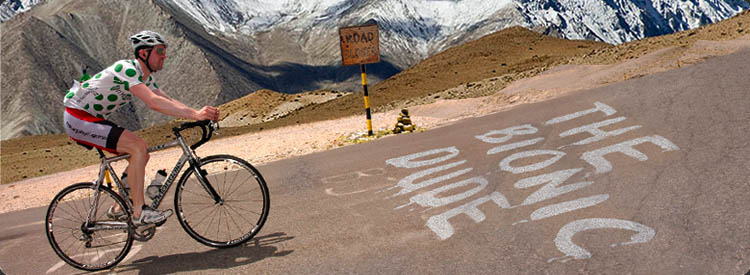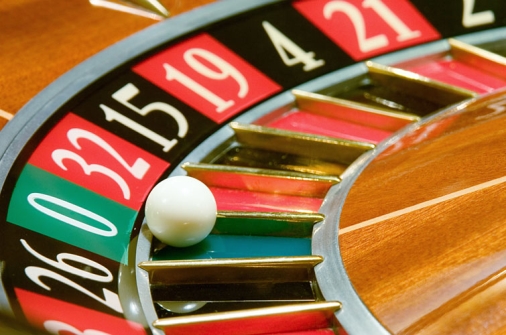Mineral Water
 Wednesday, March 24, 2010 at 11:53PM | by
Wednesday, March 24, 2010 at 11:53PM | by  Giller
Giller In keeping with the gaucho theme we would end up in a town that day called Rodeo. This little town is situated in an area known as the windiest part of Argentina. Indeed it is not much fun having to cycle uphill on what is actually a downhill section. My bike computer was showing that I was going down about 3% but due to the size of the breeze it may as well have been uphill. I have never cycled in such bizarre conditions and as I still had some beans left I dropped into the Floyd Landis tuck in an effort to slip through the breeze and time-trial my way in. This town is a reasonably popular tourist town having a lake which draws wind-surfers due to the daily afternoon gales of 120kph. The place was howling with breeze, it was pretty crazy to think that people live in a town such as this but of course they do. I do not carry a guide-book but I was aware that this town features in them due to the quality wind-surfing and rafting, so I was looking forward to seeing it. Of course, I was hoping for something akin to Tarifa near Cadiz and all I got was a town whose tourist business is literally drying up. You get used to such disappointments travelling. There is always the hope that the next town will suit you better and if you need something to pick up your morale then there is always beer or sleep. Both are pretty effective antidotes to places that your body just wants to catapult out of.
Rodeo
at last signs of life ... siesta is overWe were due a rest-day so I had to make peace with the town and my sworn enemy (wind) for another 24 hours. As always, the longer you stay somewhere the more it seduces you and the more you see it for what it is as opposed to what you want it to be. It was helpful that an Argentinian hitch-hiker joined us for lunch and gave us some insight into the problems that the town is facing. Juan Villarino is a seasoned traveller having started his round-the-world hitch-hiking trip from Belfast. He first hitched a boat-ride to Scotland on the 1st of May 2005 and has been on the road ever since. He is a very vivid writer and can create a nice post-card. He sells small hand-made books of his travels and some of his own postcards to help him accumulate kilometres of road. He is a published travel-writer whose claim to fame is the hitch-hiking lesson he gave the Kurdish parliament. He is hitch-hiking through Argentina on his way to Alaska and had stopped by Rodeo to support an anti-mining demonstration. Mining is a very contentious issue in Argentina. The ground is very resource-rich making minerals a huge source of revenue and employment for the country. Most of the mining is carried out by global players who are more interested in serving global demand than the local communities in which they operate. There are various issues associated with the mining companies, one of which is the vast quantity of water which they use to carry out their operations; hundreds of millions of litres per day. The effect is that local agriculture is damaged due to the drying up of river-beds and in addition tourism is effected as the lake, for which the area is world-famous, is also drying up. Rodeo featured on the wind-surfing world tour but the drop in water-levels has caused it to be dropped from the series this year. Naturally damage to tourism and agriculture strengthens the miners position in the community as they become the sole major employer and so the town's interests become aligned with that of the mining company. These companies see themselves as contributing to the communities through employment and infrastructure development. However, the roads they build are due to the fact that bumpy roads could detonate the explosives they carry along public roads to the mines. As ever, there is more going on than meets the eye. Regardless, the non-mining families and the land are being meaningfully impacted and so the concern is for their children's future. The government is not exactly helping as the mining companies are assisting the government to achieve its objectives of employment and international currency. The state response is to sweep such demonstrations under the carpet by ensuring that they get little media attention. As in any resource-rush the profit motive can get out of hand. Mining companies are dynamiting glaciers to get at the rock underneath and indeed they wish to detonate a whole town as it sits on top of a veritable gold-mine.
These were rather sobering thoughts, appropriate considering I was hungover from pints with Jeremy the night before. It is always difficult to stumble upon such local problems. What can you do but support Juan in his travels and wish him well in his efforts to get these issues into the public domain. However, history is riddled with people and governments mining dollars and then worrying about the mess later. The developed world remains the largest consumer of resources and indeed the largest polluter, so it's a bit rich to expect that a poorer nation such as Argentina will tow the environmental line ahead of profit and employment. They are just trying to get a leg up. Regardless, the environmental impact is very real and visible.
Chat soon
Marco
Dique Cuesta del Viento

